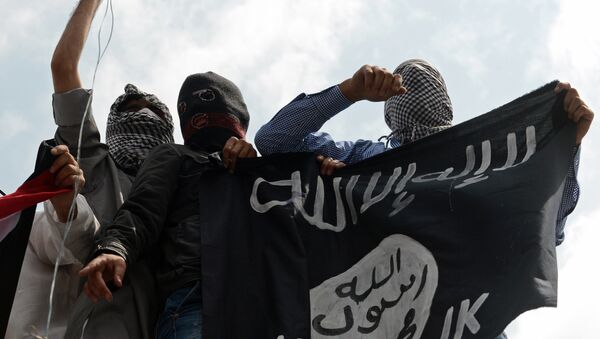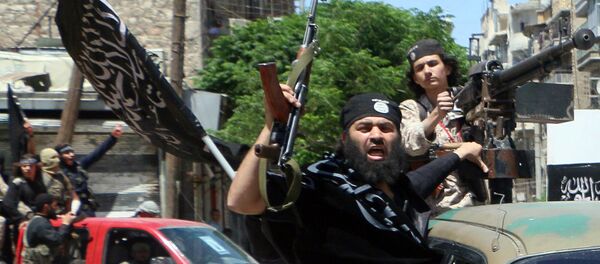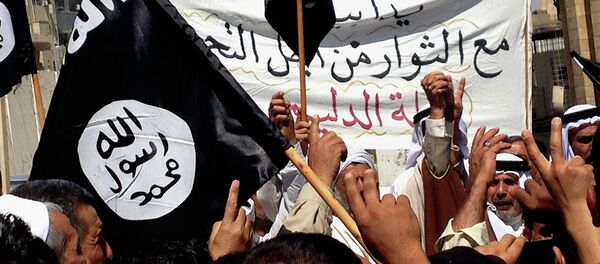The journalist pondered how it could be that despite a US-led effort against ISIL for over a year now, ISIL's operations have actually expanded. "And how come their armament stocks have also expanded, exponentially. It's not logical. If with all the equipment that the US coalition has at its fingertips, it can't wipe out what is supposedly a band of mercenaries, it begs the question: why not? And how come these mercenaries' ranks are continuously expanding?"
Beeley attributed the terror group's success in maintaining recruitment in part to Turkey's enthusiastic involvement in sending fighters across the border even "as they're being killed in their thousands." She suggested that "the buffer zone should be in Turkey, preventing them from getting into Syria, not in Syria."
She also attributed ISIL's success in part to the use of Saudi Arabia and its Wahhabist ideology, which she recalled has been used by Western countries for many decades to "achieve various strategic objectives and aims" throughout the Middle East.
The journalist noted that a multifaceted effort by intelligence agencies, think tanks, shady 'marketing' agencies, Muslim organizations, and even academia has established a powerful propaganda industry, encouraging, enticing, forcing people to join radical groups and to travel to the Middle East to fight against secular governments, as in Syria.
"This is not a new thing," Beeley emphasized. "'Nudging' as we call it was actually started in the UK back as far as World War I to alter the public's perception and to push them down a particular route'."
"We watched the Moazzam Begg trial collapse spectacularly when it was proven that the MI6 who had given the green light for his training of Syrian anti-Assad fighters," Beeley recalled. "We also have to quote them when they said that no attempt will be made to hinder him if he returned to Syria," she added. In her view, the backfiring of the trial against Begg and others points "very clearly to intelligence agencies' involvement in the recruitment and training of these extremist groups."
Beeley also suggested that the half-hearted manner in which the US-led coalition has pursued its war against ISIL has been demonstrated by the "paltry Russian involvement" in the conflict, noting that with very limited Russian support, the Syrian army has been far more effective in smashing Jihadist forces, for instance in its recent advance toward Aleppo, than the year-long US-led campaign "supposedly targeting ISIL operatives in Syria."
Suggesting that the US might not actually be trying to completely destroy ISIL, the journalist pointed out that "we had a case in the couple of days where US satellites picked up a few Russian planes in Syria. But how come these same satellites didn't pick up on hundreds of ISIS trucks driving to Mosul or Palmyra?" Beeley also pointed to reports "by both Iraqi and Iranian officials of the so-called mistaken arms drops to ISIL operatives in Syria," suggesting that they may not been accidental after all.
According to a recent US intelligence report cited by The New York Times, an estimated 30,000 ISIL recruits have crossed the Syrian and Iraqi borders to join the terror group over the past several years, with this year's rates doubling those of last year. At least 4,500 of the fighters are believed to have traveled to the Middle East from Western countries. At least 250 American citizens have joined the terror group over the past two years, 150 of them over the last year. The NYT noted that despite coalition airstrikes, ISIL has been highly successful in replenishing its ranks, drawing about 1,000 new fighters a month and, in many areas, continuing to expand the territories under its control.




